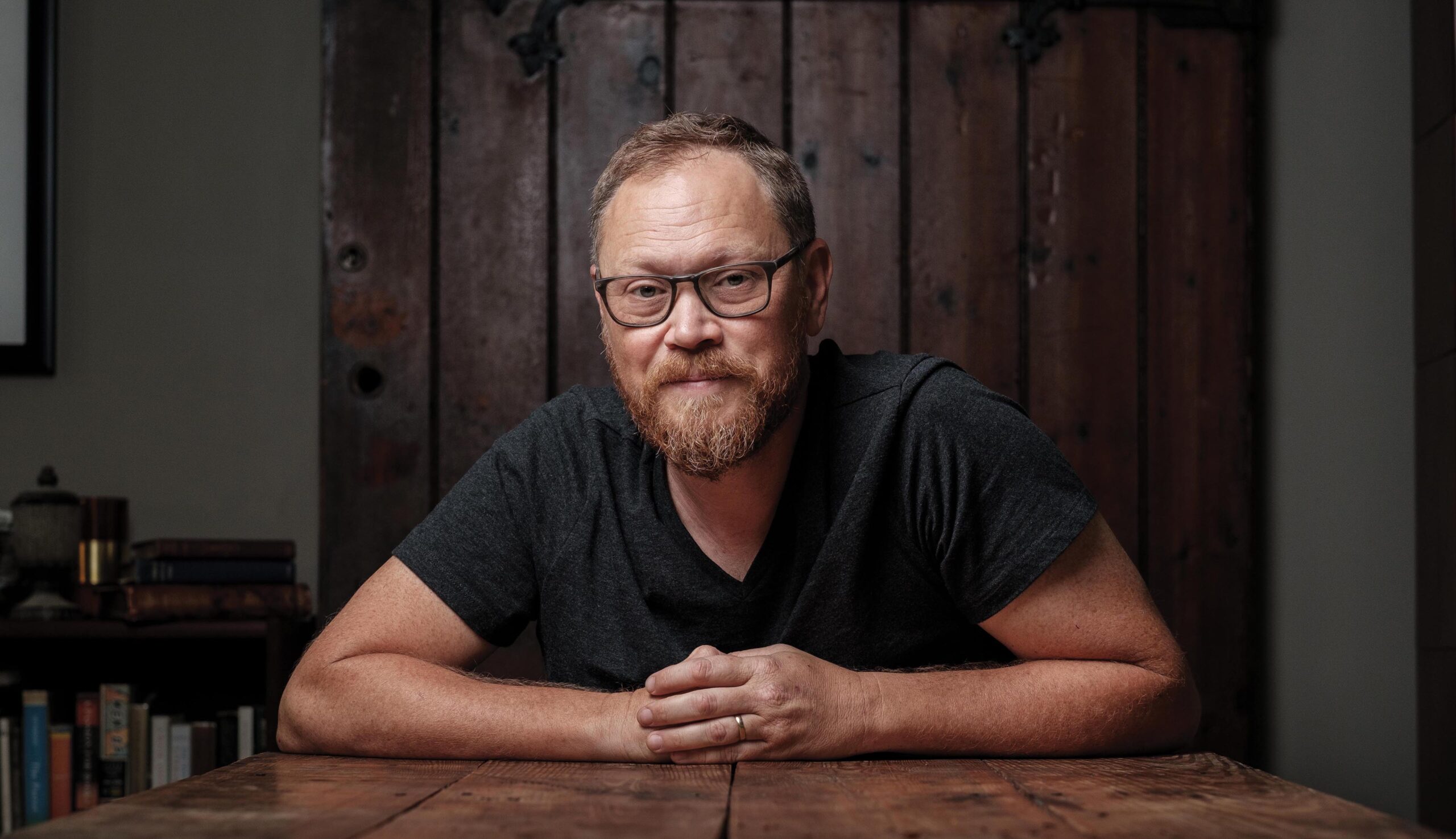“But the virtue of courage — like all the other virtues — has to be tied to the other virtues, so in order for something to be courageous it actually can’t do harm.”
Likely, you’re not all that familiar with the national English professor scene; but you may have heard of Karen Swallow Prior. In certain parts of American Christianity, Prior represents a careful and winsome voice in an otherwise angry and hyper-political echochamber. And people beyond the language arts scene — and Christian spaces, for that matter — are noticing. In the past year or so, Prior has become a legitimate public figure. Academics have responded to her writing at meetings of the Evangelical Theological Society. A search of her name at the New York Times or The Atlantic returns as many bylines by her as articles about her. And in January of this year, America’s book of who’s who, the New Yorker, published a profile of her.
National media types are drawn to Prior for much the same reason they’re drawn to anyone: politics. Her bailiwick — literature, virtue formation, public ethics — seems to eschew stereotypes of what an evangelical woman looks like. But to label Prior a political commentator would be a tragic disservice. What she’s really after is much, much bigger.
She wants Christians to take seriously their place as stewards of the world. She says this is one of the primary roles God gives his people — and we are only good stewards of the world if our hearts are shaped to love God first. Loving God requires diligence and hard work, which, Prior says, requires the scarcest of virtues: patience. And this, at least in part, is why she writes her new book, in which she explicates the roles of reading and of (good) books in shaping people. Shaping persons.
“Our culture is so geared toward the fast, efficient, and the measurable that we don’t like to wait, or we think if something takes a long time we are doing it wrong,” Prior told me during a recent interview. She teaches at Liberty University, and we chatted in the early summer about virtue formation in the church, the classroom, and the office. In her new book On Reading Well: Finding the Good Life Through Good Books, she explores virtues like courage, patience, love, prudence, and others in light of classical literature and the stories we read. Yes, on the surface, her book is about reading; but you could just as easily call the book On Living Well because the book primarily isn’t about virtues we can read about, but about Virtue. Who we are. As Prior defines it, virtue means excellence, or “excellent qualities and behavior that become so much a part of our character that they aren’t even a decision we make,” and instead they are natural responses to various situations in life, which, according to Prior, makes humans — especially Christians — different from others.
“The virtuous person,” she said, “is the one for whom a virtuous response is as much a part of their character and so ingrained in them through habituation that it’s not even really a choice and is part of their character to respond with patience, kindness, and love. Some of us may have more natural propensities toward those things, but all of us have to strengthen and develop them, so character formation or virtue happens when we practice those kinds of habits to the point they become so ingrained with us and they are part of who we are. Sometimes we’re faced with a trying situation or challenge and we have to figure out how to respond, what the best choice is, and sometimes we make the better choice and sometimes we don’t.”
Yet virtue formation is not something we conjure up alone, but we work toward, developing habits of mind and soul toward virtuous living. “As Christians we understand that we are growing, we are being sanctified, we are trying to become more excellent in our character and in our personhood, which is assisted by the Holy Spirit,” she said. And anyone who’s tried to change or faced difficulties in life knows how it shapes you, for better or worse. Prior cautions readers in On Reading Well to understand the difference between courage and rashness, especially when trying to develop virtues amidst resistance, whether from others or our environment and circumstances. She discussed this in our interview, too, explaining how “we mistake boldness or rashness or lack of caring what anyone thinks with courage.”
“But the virtue of courage — like all the other virtues — has to be tied to the other virtues, so in order for something to be courageous it actually can’t do harm,” she said. “It’s really about facing difficulties well, not just facing difficulties. If it causes damage it’s not actually virtuous courage.”
And, in many ways, this is how Prior has spent her career as an English professor and writer, striving to tie virtues together for her students and readers. As an undergraduate student at Daemen College and later as she earned a doctorate at the State University of New York at Buffalo, Prior credits much of her career shift (from social work in college to literature, focusing on British literature in the 18th century) to pastors and men in leadership roles who saw potential in her beyond what she was pursuing and encouraged her to work toward different goals.
“I think pastors play a huge role in supporting and encouraging women to flourish,” she said. “In my own life it is actually a few pastors I had early in my adult life who identified in me leadership skills and other abilities I had no idea I had and who encouraged me to step up and use those. It’s because of those pastors I am doing what I am doing today — because they saw things in me I didn’t see and encouraged me to use those gifts. Every leadership role I’ve had is because a man in leadership has pushed me forward and empowered me to take that role.”
Because of that investment in her life and career, she believes her vocation today as a professor is not only an opportunity to encourage growth in knowledge, but discipleship of hearts and minds.
“We are teaching the whole person and not just the mind or intellect, but their emotional and spiritual selves as part of a holistic education,” she said. “I love teaching in a Christian institution because as much as I love literature, I love the place that it has within God’s creation and with the way he reveals himself and this world to us, and so I love being able to teach literature in a way that connects all of those things. It’s not just intellectual for me, it’s part of discipleship.”
And as she stewards her own life and place in the world, cultivating students’ minds and hearts, Prior also guides students as they navigate their own career choices. She often reminds students that it takes many years to establish a career, and through hard work, diligence, and patience. But at the same time, many students — and people in general — believe work is about finding a dream job. Work isn’t always straightforward or easy, yet it’s important in shaping our character, she said.
“Even if we are blessed to have work that we love and work we’re good at and find fulfilling, we still experience many aspects of it that requires diligence and steadfastness on the bad days or with things we don’t like,” she said. “I think even for those of us who do have jobs that fulfill our deepest longings and passions, there’s still competing needs or obstacles in that job that require us to use discernment, to be patient, to weigh the good, the bad, the negative and the positive aspects of the work.”
In her work with students, Prior notices how often people think work is about passion and self-fulfillment. She tried instead to open up a vision for them where work is about serving neighbors and communities. Prior tries to help young people better understand how work is “about supporting life, whether it’s our own life or our families, because work is what puts food on the table and a roof over our heads. But work is also about serving other people and filling, stewarding the world by fulfilling the needs of the world. Whether it’s helping electricity to run or teaching people, we are serving our neighbor through our work and serving our families through our work.
“If it happens to fulfill other passions we have, that’s a bonus,” she continued. “But work itself is a blessing, and it’s part of being human, and it’s fulfilling us as human beings, not necessarily ourselves as individuals.”
Prior believes God called her to the classroom, and she’s trying to do what she’s really after: helping students leave her classroom “loving life, literature, and God more than when they came in,” she said. “It’s about developing students’ love for the things of God and for elements of his world that we are studying, which happens to be literature.”
As a Christian, professor, and now as a public figure, Prior embodies not what the culture envisions for evangelical women, but what Scripture calls for in leadership and faithfulness to the ground God gives us to till. In a sense, she is becoming, with the rest of us, who she’s meant to be: A steward of the world, one book and multiple decisions at a time.





